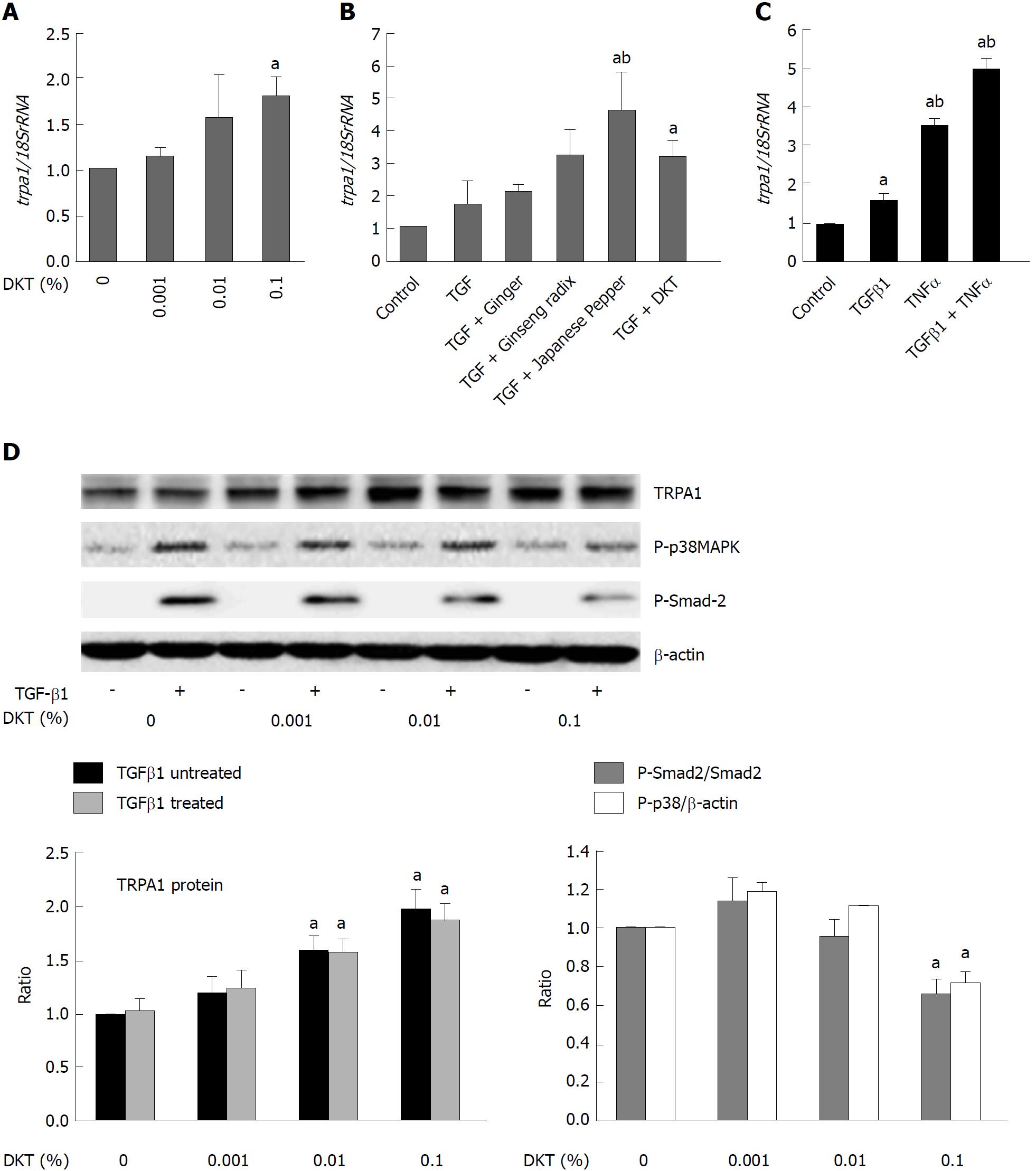Copyright
©The Author(s) 2018.
World J Gastroenterol. Sep 21, 2018; 24(35): 4036-4053
Published online Sep 21, 2018. doi: 10.3748/wjg.v24.i35.4036
Published online Sep 21, 2018. doi: 10.3748/wjg.v24.i35.4036
Figure 6 Daikenchuto upregulates transient receptor potential ankyrin 1 expression and suppresses phosphorylation events downstream of transforming growth factor-β1 signaling.
A: trpa1 mRNA expression quantified by real-time PCR in control and TGF-β1-treated (5 ng/mL, 24 h) InMyoFibs (normalized to 18S rRNA). DKT extracts (0.001%, 0.01%, 0.1%) were applied for 24 h; B: Relative mRNA expression of trpa1 with ginger (0.1%), ginseng radix (0.1%), Japanese pepper (0.1%), or DKT (0.1%) plus co-administered TGF-β1; C: trpa1 mRNA expression was upregulated by TGF-β1, TNF-α, or both; D: TRPA1 protein expression and phosphorylation of Smad-2 or p38-MAPK with and without TGF-β1 treatment at various concentrations of DKT extracts (0.001%, 0.01%, and 0.1%). The upper panel shows actual immunoblots. Graphs show relative expression level of TRPA1 (normalized to β-actin) and the relative ratios of phosphorylated/unphosphorylated Smad-2 and p38-MAPK (normalized to β-actin) after 1 h TGF-β1 treatment at various DKT concentrations. aP < 0.05 vs control cells, bP < 0.05 vs TGF-β1-treated cells (n = 4). TGF-β1: Transforming growth factor-β1; InMyoFibs: Intestinal myofibroblasts; DKT: Daikenchuto; TRPA1: Transient receptor potential ankyrin 1; p38-MAPK: p38-mitogen-activated protein kinase.
- Citation: Hiraishi K, Kurahara LH, Sumiyoshi M, Hu YP, Koga K, Onitsuka M, Kojima D, Yue L, Takedatsu H, Jian YW, Inoue R. Daikenchuto (Da-Jian-Zhong-Tang) ameliorates intestinal fibrosis by activating myofibroblast transient receptor potential ankyrin 1 channel. World J Gastroenterol 2018; 24(35): 4036-4053
- URL: https://www.wjgnet.com/1007-9327/full/v24/i35/4036.htm
- DOI: https://dx.doi.org/10.3748/wjg.v24.i35.4036









